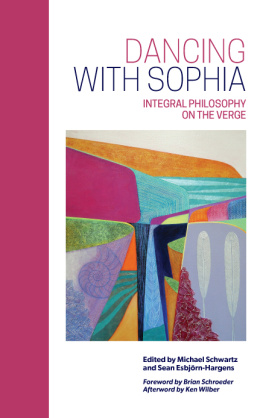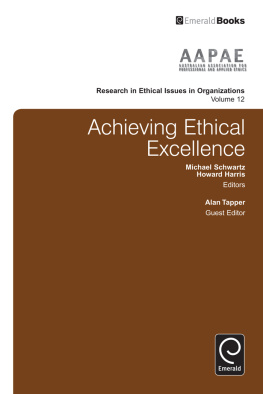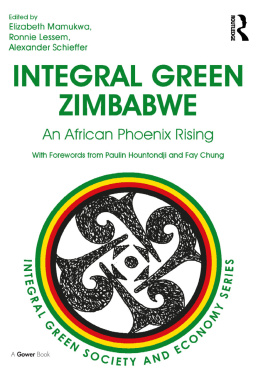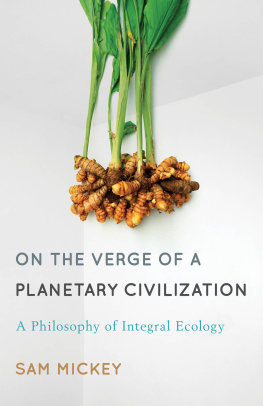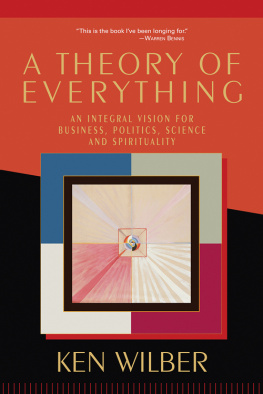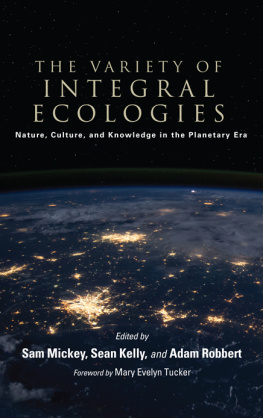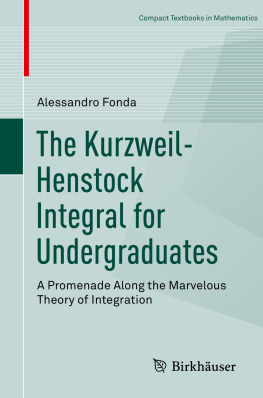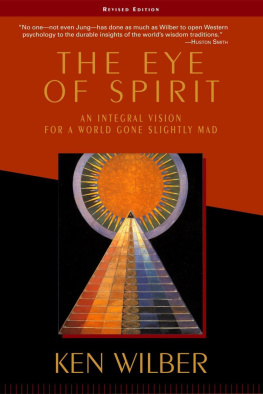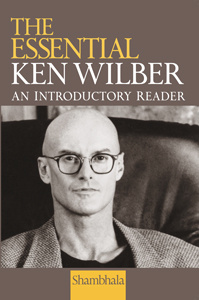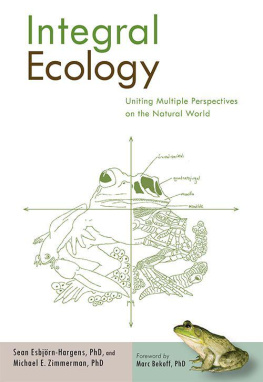Chapter 1
Integral Theory, Pragmatism, and the Future of Philosophy
Z ACHARY S TEIN
[I intend] to outline a philosophy so comprehensive that the entire work of human reason shall appear as the filling up of its details.
C.S. Peirce (in a letter to William James, 1888)
C onsiderations about the future of integral approaches to philosophy should be informed by an understanding of the various lineages contributing to its emergence. I have noted in several publications that many aspects of Ken Wilbers work land him squarely in the tradition of American Pragmatism (Stein, 2007, 2010a, in press). In this paper I elaborate on this claim, demonstrating the interpretive benefits and accuracy of characterizing Wilber as a Pragmatist, as well as the continued relevance of this approach to philosophy. I first clarify some confusion around what it means to be a Pragmatist, suggesting that it is a nonexclusive identity built around a complex set of overlapping commitments. That is, there are many ways to be a Pragmatist, and being one does not rule out being other things as well. I then discuss some of the similarities between Wilbers work and the work of key Pragmatists, specifically Peirce, James, and Dewey. I explore a constellation of six philosophical themes that both link Wilber to this lineage and display its continued relevance, namely: philosophical psychology, epistemic comprehensiveness, action-oriented theorizing, the integration of science and religion, evolutionary metaphysics, and social emancipation.
Solutions to Twenty-First-Century Problems in Nineteenth-Century Texts
The distinctive office, problems, and subject matter of philosophy grow out of the stresses and strains of the community life in which a given form of philosophy arises. Its specific problems vary with the changes in human life that are always going on and that at times constitute a crisis and a turning point in human history. The problems with which a philosophy relevant to the present must deal are those growing out of changes going on with ever increasing rapidity, over ever-increasing human-geographical range, and with ever-deepening intensity of penetration.
John Dewey (1920)
Philosophers work in socio-cultural contexts, under historically specific conditions, with access to certain communication technologies, libraries, and media. Wilber has been publishing books since 1971, producing a corpus that spans some 10,000 pages. He has worked with the changing times, from pen and paper to word processor, to the personal computer, and eventually to internet facilitated multimedia educational initiatives. Moreover, like the other Pragmatists discussed below, Wilber worked in response to a dynamically transforming American culture during a period of tremendous global change. At the risk of oversimplifying things, it could be said that the Classical American Pragmatists worked at the beginning of an epoch during which global techno-economic infrastructures were beginning a rapid transformation, while Wilber worked during the end of this epochin the twilight of Americas global dominance, in a world newly integrated via networks of industrial, transportation, communications, and computer technologies. Thus, reflective critics have rightly suggested that it is as if the Pragmatists began a sentence about the human condition, and Wilber completed it (Carreira, 2007).
The subject of that sentence would be the new self-understanding of our species that is being created as the result of profound evolutionary transformations in our societies, cultures, and scientific technologies. When James and Peirce first convened the Metaphysical Club at Harvard 1871, they were aware that certain new ideas were ascending to prominence in the broader Zeitgeist, ideas big enough to signal a coming reorientation or repositioning of humanitys understanding of itself in the universe (Menand, 2001). Today, we reap the fruits of seeds sown in the century that followed those first meeting of the Pragmatists in Cambridge. These years saw psychology replace theology as the preferred language of self-understanding and interiority. The academy transformed with the birth of the modern research university, as the increasing bureaucratization and fragmentation of knowledge led to reflective appeals for more comprehensive epistemological approaches. Action-oriented theorizing supplanted pure research across many fields, as sciencefrom physics to medicinebecame wedded to technology. There were increasing conflicts between science and religion and calls for their integration, just as evolutionary theory replaced creationist myths for large segments of the population. Institutional innovation in the name of social emancipation proliferated as traditional forms of life disintegrated in the flux of cultural and economic modernization.
These six themesphilosophical psychology, epistemic comprehensiveness, action-oriented theorizing, the integration of science and religion, evolutionary metaphysics, and social emancipationform the core of the discussion below. They link Wilber to the Pragmatist tradition and in turn link the Pragmatist tradition to certain fundamental geohistorical transformations that continue to shape the contemporary scene. These transformations are best grouped under the term planetization . This is process I have discussed before (Stein, in review), with reference to a variety of theorists who contrast economic processes of globalization (the homogenized, single-capitalist-path-to-flourishing approach), with the evolutionarily inevitable and predominantly cultural processes of planetization. This is the dialectic of global transformation, as economic structures expand to a vast planetary scale, bringing in their wake communication and information infrastructures, as well as large-scale migration and urbanization (Held, 2007). These trends have brought the birth of a truly global culture and consciousness as well as the possibility of the self-inflicted extinction of humanity. The polycentric global civilization that is emerging in the early decades of the twenty-first century is unprecedented in its complexity and scope.
Pragmatism is as much a reaction to this state of affairs as it is to any trends in academic philosophy or psychology. While Pragmatists tend to share a set of overlapping philosophical commitmentsbeyond those listed above, they also tend to posit the primacy of practice over theory, the radically social and processual nature of knowledge production processes, the centrality of language, and the epistemic value of first-person experiences (to name a few)they also share a commitment to a unique and powerful form of cosmopolitanism . Peirce (Brent, 1998), James (Richardson, 2010), and Dewey (Westbrook, 1999) were self-consciously creating a worldview that could accommodate a variety of pressing global trends, including the ascension of science as an aspect of cultural meaning-making, the rapid transformation of socioeconomic life due to technology, and the emerging prospects of a perpetually mobilized military-industrial complex (Hook, 1939).
The typical characterization of Pragmatism as a distinctly American orientation is also misleading in so far as it overlooks the fact that key themes raised by Pragmatists were also raised during the same period by philosophers who are archetypally European, such as Marx, Heidegger, and Wittgenstein. This connection between Pragmatism and Continental philosophy has not gone unnoticed (Aboulafia et al., 2001). Habermas (1992), himself a declared Pragmatist, fondly considers the Classical Pragmatists as the American Young Hegelians. Standard treatments of the tradition overlook these confluences that lift Pragmatism from its parochial enclave of cowboys and behaviorism. More sophisticated recent treatments have drawn attention to the untold story of Pragmatism, which casts it as a preemptive solution to the problem of postmodernity (Brandom, 2011; Habermas, 1992). I endorse this view of Pragmatism, which positions contemporaries like Rorty on the fringes, takes Peirces and Jamess metaphysics seriously, and seeks solutions to twenty-first-century problems prefigured in nineteenth-century texts.

